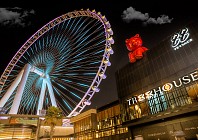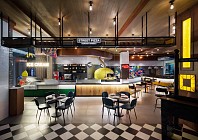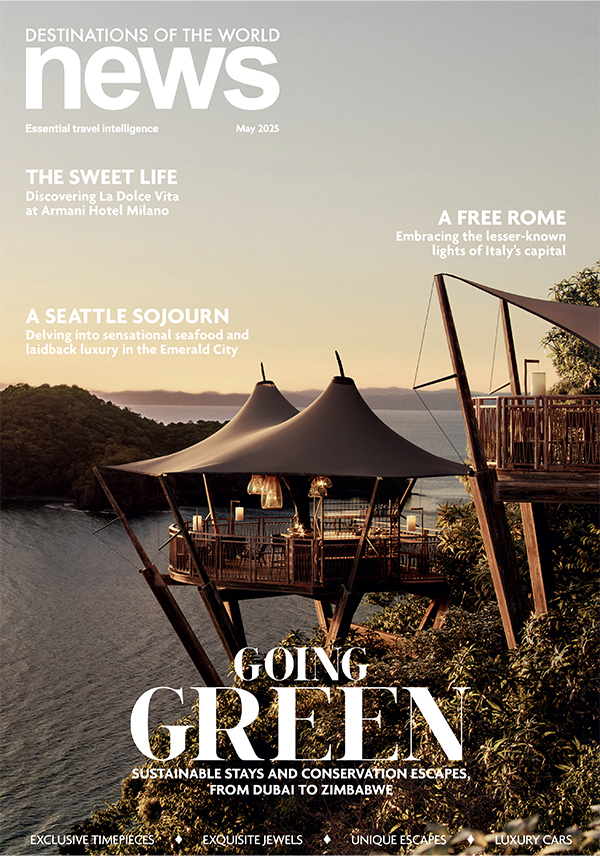 When he graduated from hotel school, Lebanese chef Joe Barza had to wait six years before he put on his kitchen whites. The war in Lebanon swept him up, and the charismatic chef became a bodyguard for several years, before turning his back on the fighting and journeying to South Africa, where he cut his teeth in the kitchen.
When he graduated from hotel school, Lebanese chef Joe Barza had to wait six years before he put on his kitchen whites. The war in Lebanon swept him up, and the charismatic chef became a bodyguard for several years, before turning his back on the fighting and journeying to South Africa, where he cut his teeth in the kitchen.
When he returned to Lebanon after the war, his goal was to revive the art of Lebanese cuisine. Today Joe Barza presents Top Chef Middle East and takes part in international events including the recent ‘Stars, Food & Art’, which saw eight Michelin-starred and celebrity chefs come together to prepare an eight-course menu for high-profile guests at Sofitel Dubai.
Why did it take you so long to set off
on your career as a chef?
I finished hotelier school in 1982, but because of the war in Lebanon I wasn’t able to continue cooking. I moved to Johannesburg in ‘88, where I returned to the kitchen.
What did you learn in South Africa?
We were 14 different nationalities in one kitchen, so it was a big melting pot of different cultures. I had a great boss who taught me how to think – not only how to cook, but also how to think. In the kitchen it’s not only about cooking. It’s responsibility, it’s leadership, it’s learning not to panic and it’s about solving problems.
How were chefs perceived in Lebanon when you left the country?
In Lebanon, the job of a chef was like that of a servant – no one respected the work. When I wanted to get married, I was embarrassed to tell the parents of my future wife that I was a chef, and that hurts.
Are chefs respected in Lebanon today?
When I came back to Lebanon in 1994, my first aim was to improve the local chefs’ skills; their look, their uniforms, their attitudes. Now everybody is looking at us. The salary scale for chefs went up and we have very famous Lebanese chefs. I transformed the role of chefs from servants to artists.
How has the restaurant scene in Lebanon changed in the last 20 years?
Today, restaurants in Beirut are like mushrooms – they are growing and popping up everywhere. But the good ones are staying and the bad ones are closing. There is a big revolution, especially now you have new developments like Zaitunay Bay – it’s becoming expensive to eat out. You can pay up to US$80 per person for a Lebanese meal. It depends on the location, the service and the quality of the food. For example, you can buy green olives for $8 per kilo or for $20 per kilo. Lebanon is a hot destination and Lebanese food is a hot commodity.
Why is food so special to you?
There are two things that create direct contact between people – love and food. I give you the plate and you take it and eat the food that I have prepared for you. Food can unite; you sit together and you eat together.
What are the most important lessons
you have learned on your journey?
The biggest lesson is that when you love something, you love something. Working
in the kitchen is 70 percent love, 15 percent know-how and 15 percent knowledge of ingredients. That’s how I see it. I love the kitchen. But the kitchen kept me away from other things I love. It split my life – it kept me away from my wife. You think it will
finish, but it will never finish.










